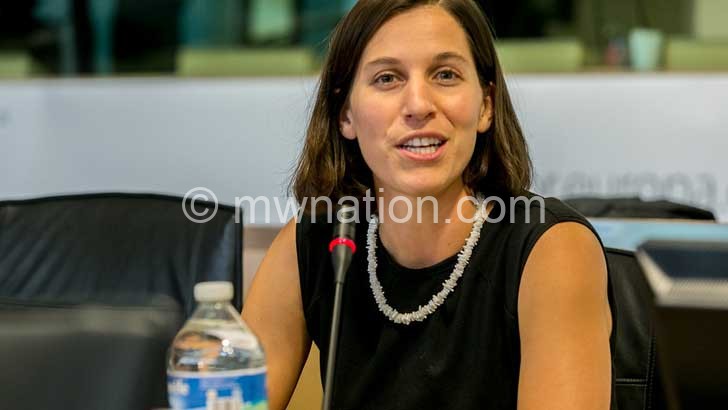EU rebuffs Malawi on aid, cites corruption
The European Union (EU) has rebuffed the Malawi Government’s plea for resumption of direct budget support, saying it is concerned with corruption and poor public finance management structures.
The sentiments emerged from the first bilateral dialogue meeting between the Malawi Government and the EU at Capital Hill in Lilongwe yesterday.
The agenda of the closed-door meeting indicated that the Malawi Government would “further request the EU to consider the resumption of direct budgetary support”. Sources who attended confided that the issue of resumption of direct budget support was discussed at length.
The Malawi Government team comprised Cabinet ministers Eisenhower Mkaka (Foreign Affairs), Felix Mlusu (Finance) and Titus Mvalo (Justice) as well as some senior officials from the three ministries.

Mlusu made a presentation on the state of the economy and public finance which painted a gloomy picture on how government is struggling to meet the budget deficit
amidst shrinking economic performance due to Covid-19.
He said: “A closer look at the Malawi national budget clearly indicates its skewed towards statutory expenditures, namely the wages and salaries, interest payments as well as pensions. Together, these three account for closer to 80 percent of the country’s total expenses.”
In an interview after the meeting, leader of the EU team and EU Delegation in Malawi charge d’ affaires Aurelie Valtat said there was still more to be done by the Malawi Government if budget support is to resume.
She sa id Brussel s was still monitoring the roadmap agreed in 2019 which has four criteria for Malawi to implement to unlock direct budget support.
Said Va l t a t : “The presentation [by Mlusu] was very factual and one of the key issues they highlighted is the limited public funds available to implement their policy. So, basically, for them budget support is one of the solutions to some of these issues.
“But for us, the question is a bit more complex. We need to find better ways
to see how we can help. Just to add that budget support is just one tool of supporting Malawi but there are other tools.”
Donors, including the EU, stopped providing direct budget support to Malawi following revelations of plunder of public resources at Capital Hill in 2013 known as Cashgate.
On whether corruption is another factor holding budget support, the EU envoy responded in the affirmative, saying: “Yes, it is one of the elements. Corruption is one of the issues in the possibility to resume direct budget support.
“But in the criteria there is also an issue of transparency in public finance management, so it is not just about corruption but having a system that is more efficient and transparent; having the money go where it is supposed to go.”
Valtat said although the new administration, ushered into office on June 23 through the court-ordered fresh presidential election, has engaged them in this fresh discussion on the matter, it is not possible that a decision can be made within a year.
Reacting to the plea for direct budget support, economist Gowokani Chijere Chirwa said the fact that Malawi has survived without the direct budget support since 2013 was an indication the country was learning to walk on its own.
He said: “It will be tough, but we are a step ahead than it was 10 years ago. Getting back the donor direct budget support is like moving steps back.
“To finance our budget, let us now seriously embark on these activities that can increase our incomes like expanding the greenbelt initiative which has a potential to employ more and have more taxes to finance the budget.”
Before suspension of budget support over six years ago, donors provided about 30 percent of recurrent expenditure and 85 percent of development budget





